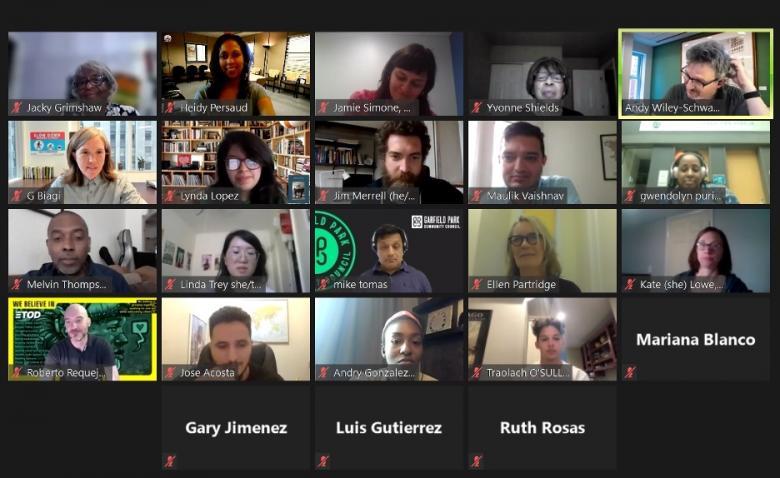Decisions by transportation agencies have often harmed communities that have not been in positions to advocate for themselves or contribute to decision making. Increasingly, the leaders and staff of transportation agencies recognize this problem and are looking for approaches to improve equity in their transportation decisions. We often hear them ask: “We recognize the need to commit to equity. BUT HOW?” While there is more than one answer to this question, one approach has proven to deliver meaningful, sustainable, and respectful results: working directly with Community Based Organizations (CBOs).
Why is it important to work with CBOs in transportation?
CBOs, particularly those who directly confront environmental justice problems, represent the interests of the people who live in their neighborhoods, with a focus on residents who are most vulnerable and underrepresented in traditional planning processes. But CBOs have not historically been seen as transportation stakeholders and are prevented from actively participating by barriers at multiple levels of government. This underpins the need for increased and targeted public engagement, for more community-led design processes, and for sustainable partnerships with local CBOs.
Transportation Equity Network (TEN): What is it? Who are they?
TEN is a coalition of local CBOs, equitable transportation advocates, and civic organizations in the Chicago region who work with decision-makers to embed racial equity and mobility justice into transportation via community-driven decisions and investments. TEN focuses on pressing topics such as: advocating for equitable decision-making processes, transportation improvements without displacement, reducing the negative impacts of freight on communities, and preserving and reframing transit service in the context of COVID-19.
The philosophy of TEN is that CBOs should have more influence over transportation decision-making, but have not been meaningfully engaged by government, or compensated for the value that they bring. That is why Black and Brown representatives hold the majority of leadership positions within the coalition, and local CBOs are compensated for their time and participation.

TEN was formed in 2020. In the short time since then, TEN has influenced policy, successfully pushing the Chicago Department of Transportation to make equity the central component of its 2021 strategic plan. TEN has also advanced priorities of individual members; for example, the network has prioritized bringing resources to The Go Hub, a community mobility center proposed by Equiticity in North Lawndale, and supporting the Little Village Environmental Justice Organization in calling attention to the inequitable impacts of freight. See the TEN webpage for more examples.
What are we advocating for overall? CBO INVOLVEMENT + COMPENSATION
Our message is simple: transportation agencies need to better involve CBOs in their work, with respectful relationships and fair compensation. But what do we need to do to get there? Our priorities include:
Prove the model. TEN is a coalition of CBOs that have joined forces to collectively address the Chicago region’s serious transportation inequities. We need to grow this coalition, continue pushing transportation agencies to listen to (and to pay for) their important perspectives, and build our ability to advocate for TEN members’ needs.
Change the rules. Real barriers stand in the way of better CBO involvement. The federal government – the largest transportation funder – is part of the problem and must be part of the solution. With a group of partners, CNT is advocating for the U.S. Department of Transportation (USDOT) to clarify the eligibility of federal money for CBO compensation, and to require CBO participation in new discretionary grant programs that emerge from infrastructure legislation (e.g. Bipartisan Infrastructure Bill).
Create new systems. Even those transportation agencies that want to involve CBOs as compensated partners find their efforts stymied by procurement and legal requirements that simply don’t work for this purpose. Some agencies attempt to “build the capacity” of CBOs to comply with these requirements, but while well-meaning, that’s not solving the problem: changing practices at governments themselves is what is needed.
Organize! Finally, CBOs need to demand their place at the transportation table. The model for the coalition that CNT has helped to form in Chicago, made up of CBOs and civic partners, could be applied in other places as well.
Interested in learning more? Please contact Heidy Persaud at hpersaud@cnt.org to discuss this concept further!





 Strengthening Transit Through Community Partnerships
Strengthening Transit Through Community Partnerships